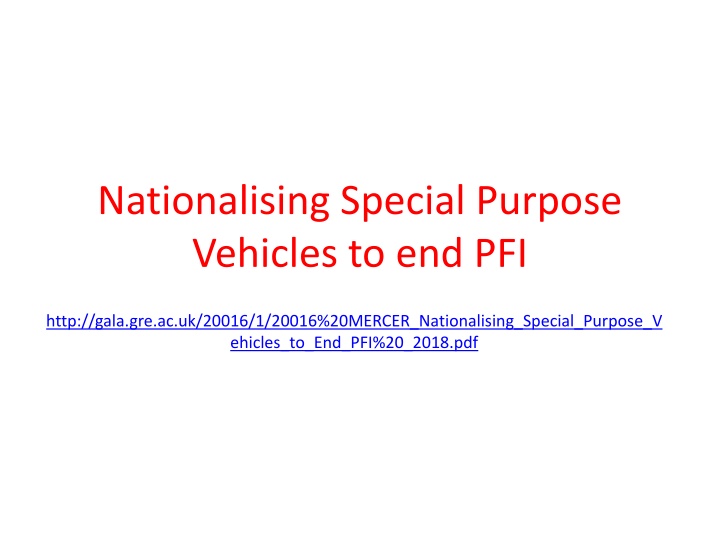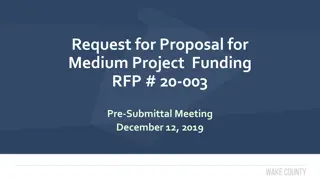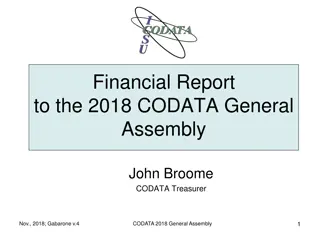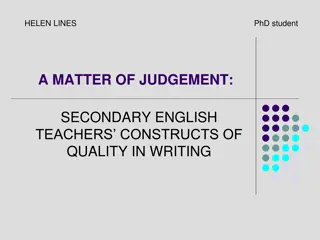
Nationalisation of Special Purpose Vehicles in PFI
This document discusses the mechanics of Private Finance Initiatives (PFI) and Special Purpose Vehicles (SPVs), outlining how SPVs operate within PFI contracts. It examines the roles of investor consortiums, construction contractors, and facilities management contractors in funding and managing infrastructure projects. The process of dismantling PFI involves transferring ownership of SPVs to the government, with implications for equity ownership and outstanding liabilities.
Download Presentation

Please find below an Image/Link to download the presentation.
The content on the website is provided AS IS for your information and personal use only. It may not be sold, licensed, or shared on other websites without obtaining consent from the author. If you encounter any issues during the download, it is possible that the publisher has removed the file from their server.
You are allowed to download the files provided on this website for personal or commercial use, subject to the condition that they are used lawfully. All files are the property of their respective owners.
The content on the website is provided AS IS for your information and personal use only. It may not be sold, licensed, or shared on other websites without obtaining consent from the author.
E N D
Presentation Transcript
Nationalising Special Purpose Vehicles to end PFI http://gala.gre.ac.uk/20016/1/20016%20MERCER_Nationalising_Special_Purpose_V ehicles_to_End_PFI%20_2018.pdf
Understand the weapon, understand the wound The mechanics of the private finance initiative Special purpose vehicle SPV is a shell company. Private company registered at Companies House Public authority signs PFI contract with the SPV. SPV contracts to DBFO infrastructure. Public authority agrees to regular payments the unitary charge Unitary charge consists of: Availability charge, mainly payment of debt Service charge (60% of total) Public Authority
Investor consortium Construction contractor Facilities management contractor (maintenance and servicing) Investment company Consortium provides equity finance . It owns shares in SPVs; lends 10% of finance required to provide infrastructure Consortium receives: dividends on profits of SPV + Interest on its loan interest rate 10-15%. Special purpose vehicle Public Authority
Investor consortium Construction contractor Facilities management contractor (maintenance and servicing) Investment company Consortium receives dividends on profits of SPV Interest on its loan interest rate 10-15%. Debt investor: bank loans and bonds. Interest / inflation rate swaps Consortium provides equity finance . It owns shares in SPVs; lends 10% of finance required to provide infrastructure Construction contractor Special purpose vehicle Facilities management contractor: Hard FM (maintenance) Soft FM (cleaning, catering etc) Public Authority
Dismantling PFI Two elements: Transferring ownership of the SPVs to the government The contracts
Investor consortium Construction contractor Facilities management contractor (maintenance and servicing) Investment company Government All equity (shares) in the SPV is transferred to the government which now owns the SPV. Government pays compensation to former shareholders. This has been calculated at about 2.5bn Special purpose vehicle Public Authority
Special purpose vehicle now owned by government body Government body honours outstanding liabilities but refinances loans, reducing interest rates. Debt investor: bank loans and bonds. Interest rate/ inflation rate swaps Public authority continues to pay to SPV that part of the unitary charge which covers debt and principal Construction contractor Facilities management contractor: Hard FM (maintenance) Soft FM (cleaning, catering etc) Public Authority Public authority contracts directly with facilities contractors. Estimated savings from bypassing SPVs = 1.4bn per year, or about 14% of total unitary charges 2018.
In summary UK law says parliament fixes compensation for nationalised assets. 2.5bn is full book value of equity. As facilities management contracts expire, provision of services can be brought in-house . No contracts are broken or terminated so no claims possible for premature termination or breach of contract. Transferring service contracts to public authorities eliminates the SPV margin on service contracts total annual saving of 1.4bn. Savings of 1.4bn per year are big return on 2.5bn cost of compensation for nationalising equity.






















